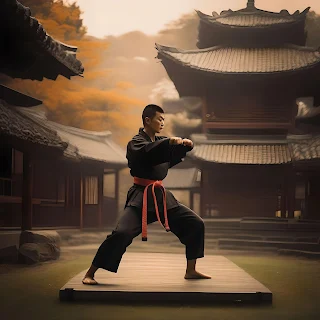Question: How do martial arts training objectives encompass physical strength, mental resilience, self-defense, and philosophical understanding?
Martial arts have captivated people around the globe for centuries, evolving from ancient combat techniques to modern-day practices that offer a wide array of benefits. While often associated with self-defense, martial arts training serves multiple objectives that extend far beyond physical combat. Practitioners embark on a journey that strengthens the body, sharpens the mind, enhances self-defense skills, and deepens their understanding of martial art philosophies.
Physical Strength and Conditioning
One of the most apparent benefits of martial arts training is the improvement in physical fitness. Techniques such as striking, kicking, grappling, and sparring require significant physical exertion, contributing to cardiovascular health, muscle development, and overall endurance. Regular training sessions promote agility, coordination, and flexibility, which are essential for performing complex maneuvers. This rigorous physical activity not only enhances athletic performance but also fosters a sense of discipline and commitment to maintaining a healthy lifestyle.
Mental Resilience and Focus
Beyond the physical demands, martial arts significantly contribute to mental fortitude. Training often includes meditation and mindfulness practices that help practitioners develop a calm and focused mind. The repetitive nature of practicing forms and techniques cultivates patience and perseverance, teaching individuals how to push through challenges and setbacks. The mental clarity gained through martial arts can translate to improved concentration, stress management, and emotional regulation in everyday life. This mental resilience is crucial for facing not only physical opponents but also the daily stresses and pressures of modern life.
Self-Defense Skills
Self-defense is a core component of many martial arts disciplines. Learning how to protect oneself in various situations is a powerful and empowering skill. Martial arts teach practical techniques for defending against attacks, emphasizing awareness, quick reflexes, and strategic thinking. These skills are invaluable in real-world scenarios where personal safety is at risk. Moreover, the confidence gained from knowing how to defend oneself can significantly reduce fear and anxiety, allowing individuals to navigate their environments with greater assurance and security.
Philosophical Understanding
At the heart of martial arts lies a rich tapestry of philosophy and ethics. Many martial arts traditions are steeped in cultural and spiritual teachings that emphasize respect, humility, and self-discipline. The philosophical underpinnings of martial arts encourage practitioners to strive for personal growth, ethical behavior, and harmonious living. For example, the concept of "Do" in Japanese martial arts, meaning "the way," reflects a lifelong journey of self-improvement and enlightenment. Understanding these philosophies fosters a deeper connection to the art form and its cultural heritage, enriching the training experience beyond physical and technical mastery.
Conclusion
Martial arts training is a holistic practice that integrates physical conditioning, mental resilience, self-defense, and philosophical insight. It is a path that offers diverse rewards, shaping individuals into well-rounded, confident, and thoughtful practitioners. Whether one seeks to enhance physical fitness, develop mental strength, learn self-defense, or explore the deeper philosophies, martial arts provide a comprehensive approach to personal development. By embracing the multifaceted objectives of martial arts, practitioners embark on a transformative journey that extends well beyond the dojo and into all aspects of life.

Comments
Post a Comment